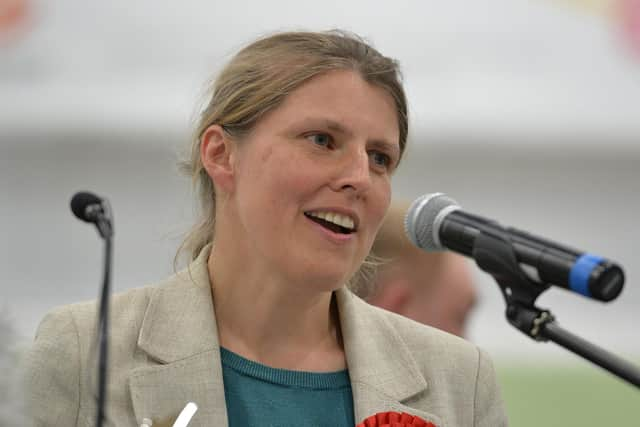Government action to cut number of children in care makes moral and financial sense - Rachael Maskell
We must be mindful that millions of parents have excelled in nurturing their children in loving, secure homes—but sadly that is not everyone’s story. Good parenting takes skill, time and patience. That is why parents, foster carers, kinship carers and adoptive parents are simply amazing. No matter the relationship, when there is a cry for help, it must be heeded.
Asylum-seeking children, disabled children and those with learning disabilities or from minoritised groups need excellence and care; they need safe, secure and loving homes. That is what we want for every child. Tragically, for too many, that is not their experience. We worry, and we have to act.
Advertisement
Hide AdAdvertisement
Hide AdSerious case reviews shake us and then they are filed, until we are reminded by the next report, and then the next.


The story is familiar: invisible children, overstretched services, social workers drowning in demands, warning signs—and then it is all too late.
Children disappear between agencies, between the multitude of social workers who are never given the chance to excel as they are squeezed by demand. Parents are let down, children are let down.
Parents endure the pain of separation from their children, just because life failed them—life went wrong. If only the system had time to break in and break the intergenerational cycles to provide the very best early interventions.
Advertisement
Hide AdAdvertisement
Hide AdThere are half a million children in need of support, 82,170 of them residing in the caring system. If we do not pivot, it will be 100,000 in a decade. But they are not numbers: they are our future, they are our now, they are our children. Like all of us, they want to know they are safe. They want love. They want family.
We get it. Life is hard. Parenting is really tough, and where there is little support and stress presses in, something breaks. However, when children’s social services are under-resourced and overwhelmed, reparation is harder.
Take Ava, who was placed in foster care when family hardship meant she was not provided with the care she needed. She moved far away, separated from her brother and sister. On the cusp of turning 18, she was told to move out and is now living alone in an unfamiliar town, all because her family struggled. That is not care.
I think of the young mum desperate to do the right thing, but not supported to parent before the painful adoption order is granted. The trauma never leaves her.
Advertisement
Hide AdAdvertisement
Hide AdI think of parents not coping with complex needs and complex relationships, coercion and control, violence in the home, poverty knocking on the door, isolation and poor mental health. I think of the children left lonely, afraid, neglected, in need of care, and sadly, for some, in need of safety. I think of those sucked into slavery: from county lines to sexual exploitation, they disappear, lured by the promise and the hope of better, then destroyed. Sometimes, thing just go wrong.
There is a blueprint on the Minister’s desk: to cut the number of children in care by 30,000 in a decade and to make countless more families thrive. If Government really grasp the urgency and importance of this, they will find the money, too, not least as they will see the return quickly.
For children in and around the care system, time is not on their side. Key parts of the workforce are contemplating their future.
Families are under ever growing stress, as are services, and children need to be kept safe. The power of the report is in its echoing of the voices of people with care experience. Their aspirations must turn into Government ambitions. From the outset, it would be unethical for Government to speak of pilots for implementation. Clearly, every authority has its differences—some have better leadership, some better funding, and some are already on the path of reform—but to leave an authority behind would be to leave a child behind.
Advertisement
Hide AdAdvertisement
Hide AdThe cost of children’s social care is £10 billion a year right now, and the current cost of adverse outcomes is £23 billion a year. Not to act will cost £15 billion in 10 years’ time and have a higher social tariff, too.
Investing in families is the most pressing reform, by bringing together multidisciplinary teams from across agencies together to input into, support and transform families, with health, mental health, education, social services and families working together. It is about building families, investing in families, and getting the right support to families in the right time.
We need family help delivered by brilliant practitioners through family hubs and schools, with skilled and intensive support from the first 1,001 critical days through to childhood and adolescence, and into young adulthood—one team around one family, one assessment process and one plan; radical help, bringing radical resolution.
Rachael Maskell is the Labour MP for York Central. This is an edited version of a speech given in Parliament.